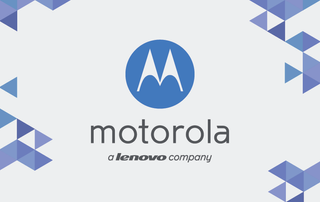Lenovo Completes Motorola Acquisition And Strives To Become A Strong Global Mobile Player

Today, Motorola announced that its acquisition by Lenovo from Google is now complete. The $2.9 billion acquisition was announced earlier this year, in January. Google bought Motorola Mobility in 2012 for $12.4 billion, and it has since already sold Motorola's set-top box division to Arris Group for $2.35 billion. The smartphone division along with 2,000 patents was sold to Lenovo.
Lenovo said it will keep the Motorola brand for western markets, which seems like a good move. The Lenovo brand is basically non-existent in the western mobile markets. Motorola's brand, while not as strong as it was in the RAZR days, is still remembered fondly by many. Under Google's stewardship, Motorola has also started to improve its image as an Android OEM.
“The acquisition of such an iconic brand, innovative product portfolio and incredibly talented global team will immediately make Lenovo a strong global competitor in smartphones. We will immediately have the opportunity to become a strong global player in the fast-growing mobile space," said Yang Yuanqing, chairman and CEO of Lenovo.
Three of the factors for its recent success (at least in terms of image, if not sales) were the usage of stock Android (with a few of Motorola's own apps, and slightly different camera software), the selling of a high-value phone such as the Moto G, and quick updates.
It will be interesting to see whether Lenovo can continue using those strategies, or if it will decide to create its own skin on top of Android. Motorola's COO, Rick Osterloh, said in a blog post that he doesn't believe Lenovo will alter the software on the Motorola phones, but that's something that remains to be seen. Lenovo will probably only keep that strategy if it believes it works.
Motorola has been losing money for the past several years, which has also impacted its ability to advertise its products properly, and that in turn led to fewer sales and fewer high discounts. Lenovo is currently the number one PC vendor globally, and it should have enough money to strengthen Motorola's position in the mobile market.
The two companies have 8 percent global market share between them, according to Strategy Analytics. When Lenovo announced the acquisition in January, its CEO Yuanqing Yang said that he hopes Lenovo will surpass both Samsung and Apple in the mobile market.
Stay on the Cutting Edge
Join the experts who read Tom's Hardware for the inside track on enthusiast PC tech news — and have for over 25 years. We'll send breaking news and in-depth reviews of CPUs, GPUs, AI, maker hardware and more straight to your inbox.
Lenovo will be getting 3,500 new employees as part of the deal, with 2,800 from the U.S. alone, although seeing how the manufacturing will be moved to China, there may be some layoffs soon, as is often the case with mergers.
Follow us @tomshardware, on Facebook and on Google+.
Most Popular



